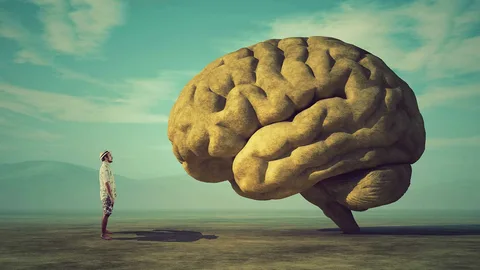
“Grief doesn’t just break your heart—it rewires your brain and drains your body.” We often think of grief as an emotional experience. We picture the tears, the sadness, and the aching absence of someone we loved. But what many don’t realize is that grief is a full-body experience—one that doesn’t just affect how we feel, but how we think, how we function, and even how we physically move through the world. In Embracing Loss: A Guide to Living and Thriving Beyond Grief, authors Dr. Davis M. Byars Jr. and Dr. Arthur Ben Faust go beyond the surface-level description of grief and take a closer look at the often-misunderstood science behind it. They make one thing very clear: grief is not simply a matter of sorrow. It’s a biological, cognitive, emotional, and even spiritual storm that sweeps through every corner of a person’s being. To heal, we must understand what grief does to us.
The first thing we experience after loss is an emotional rupture. Sadness, anger, guilt, regret, confusion, numbness—these are not just feelings but evidence of the mind trying to make sense of a world that has changed forever. The emotional reactions are unpredictable and layered, coming in waves that confuse even the most emotionally intelligent individuals. As Dr. Faust points out, “Grief isn’t linear. It ebbs and flows. It can crash into you like a storm and disappear before you can catch your breath.” This isn’t an exaggeration—it’s rooted in how our nervous system responds to trauma. When someone we love is suddenly gone, the brain interprets this as danger. It floods our system with stress hormones like cortisol, heightening our emotions and putting us on edge.
One of the most disturbing aspects of grief is what it does to our thoughts. Dr. Byars describes this as the “mental fog” of loss. It’s that strange inability to focus, remember simple things, or make decisions that once came easily. This happens because the brain is working overtime. Emotionally, it’s processing intense pain; cognitively, it’s struggling to adapt to a reality that no longer includes the one we lost. The prefrontal cortex—responsible for reasoning, decision-making, and memory—slows down. That’s why grieving people often feel like they’re “not themselves.” Confusion, disorientation, forgetfulness, and even hallucinations (like hearing the deceased’s voice or seeing them in a crowd) are not signs of losing one’s mind. They are natural responses to the shock of grief. As the authors remind us, “Grief wears different faces for different people,” and cognitive disarray is one of them.
Grief doesn’t stop at the brain—it cascades into the body. The immune system weakens. Appetite disappears or increases. Sleep is disrupted. Some people lose weight rapidly; others gain it. Muscles tighten, energy drops, and the simplest tasks feel impossible. This is because the stress of grief acts like a prolonged trauma. Dr. Faust, who witnessed hundreds of deaths during his time as a hospital chaplain, notes that “grief is stored in the body just as much as the mind.” It’s why people often say they feel physically sick with sorrow. Fatigue is one of the most common symptoms. You’re not just tired from crying—you’re tired because your body is actively fighting emotional overload. That’s why rest, nutrition, hydration, and movement (even short walks) are not luxuries during grief; they are survival tools.
Beyond the mind and body lies a third layer of grief: the soul. Whether religious or not, most people ask questions like: Why did this happen? Where are they now? What does life mean without them? These existential questions can be terrifying, but they are part of the healing. According to Embracing Loss, spiritual pain isn’t something to be solved—it’s something to be felt and examined. Dr. Byars writes, “By embracing your grief, you honor the love and connection you shared. That is where meaning begins.” Grief challenges your beliefs, your worldview, and your sense of identity. But in that breakdown, something powerful can emerge: a new understanding of who you are, what you believe, and how you want to live moving forward.
One of the most powerful knowledge in the book is this: naming the pain helps lessen its grip. When we understand that our forgetfulness, anger, or insomnia is part of a natural biological process, we stop judging ourselves. We stop saying, “I should be stronger” or “I should be over this by now.” Instead, we say, “This is grief. And grief is work.” The authors emphasize the importance of talking about grief, telling our stories, and seeking professional help when needed. Whether it’s through therapy, community, or creative expression, they urge us to process the grief—not bury it. Because buried grief never dies. It waits.
Embracing Loss shares one main truth: grief is not a sign of weakness—it is a sign of love. The pain you feel is the measure of your bond. The authors don’t want readers to suppress that pain or rush through it. They want us to understand it, face it, and eventually grow through it. They believe that grief, when faced with honesty and supported with care, can become a force for renewal. As Dr. Faust writes, “By picking yourself up, you not only heal your own heart but become a pillar of strength for others.”
Have questions or need assistance? We’re here to help! Use our contact page to get in touch.
© Copyright 2025.Arthur Ben Faust All Rights Reserved